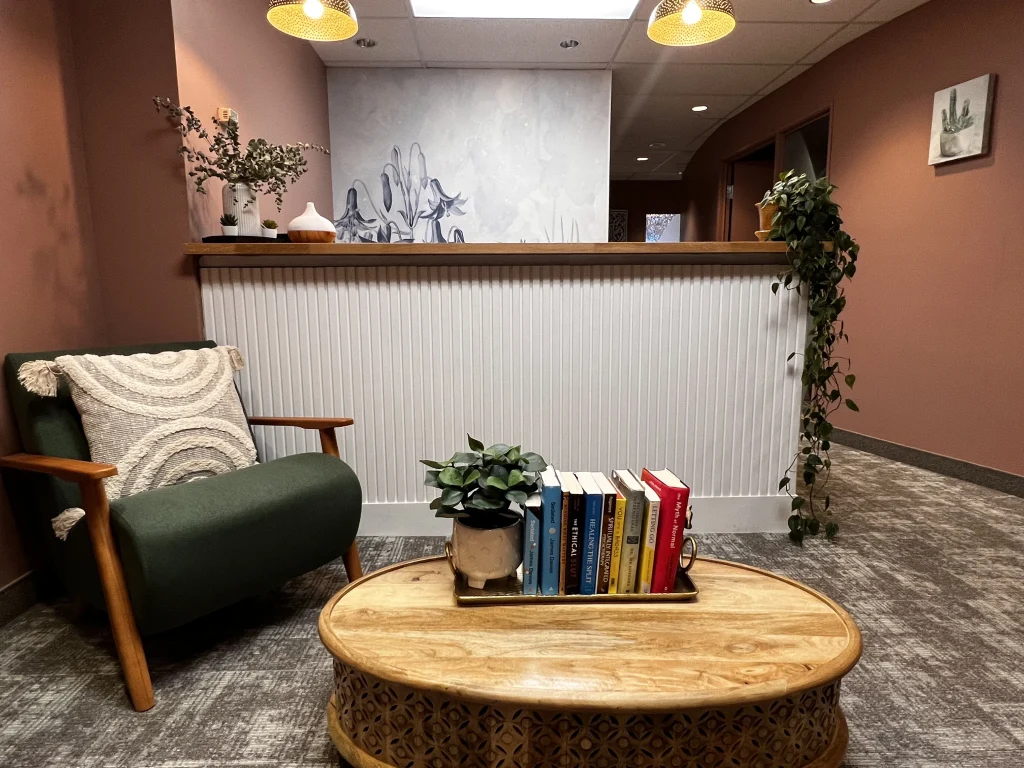
As a physician deeply committed to mental health care, I’ve witnessed the profound impact of Medical Assistance in Dying (MAID) on patients, families, and healthcare professionals. The decision to pursue MAID is intensely personal, often fraught with emotional complexity and ethical considerations. In this guide, we’ll explore the MAID process, addressing common concerns about physical sensations, emotional preparedness, and the impact on loved ones. We’ll also examine innovative alternatives for those struggling with treatment-resistant mental health conditions, offering a comprehensive view of end-of-life care options and cutting-edge mental health treatments.
The MAID Process: Understanding What to Expect
During my career in mental health, I’ve encountered many questions about the Medical Assistance in Dying (MAID) process. It’s crucial to understand what MAID entails, both for those considering it and for their loved ones. This section will provide a clear, compassionate overview of the MAID process, addressing common concerns and explaining what patients and families can expect.
Eligibility Criteria for MAID
The eligibility criteria for MAID are carefully defined to ensure that this option is available to those who truly need it. In Canada, individuals must be at least 18 years old, capable of making healthcare decisions, and have a grievous and irremediable medical condition. This condition must cause unbearable suffering that cannot be relieved under conditions the person considers acceptable.
It’s important to note that mental illness alone is not currently an eligible condition for MAID in Canada. However, this is a topic of ongoing discussion and debate among healthcare professionals, policymakers, and the public. As a mental health practitioner, I believe it’s crucial to explore all available treatment options before considering MAID, especially for those with mental health conditions.
Steps Involved in the MAID Procedure
The MAID process involves several steps to ensure patient autonomy and informed decision-making. Initially, the patient must make a request for MAID, which is followed by assessments from two independent healthcare professionals. These assessments confirm the patient’s eligibility and capacity to make this decision.
If approved, there is a mandatory reflection period of at least 10 days, unless death or loss of capacity is imminent. During this time, patients have the opportunity to discuss their decision with loved ones and healthcare providers. They can also change their mind at any point. The final step involves the administration of medications that will end the patient’s life, typically performed by a physician or nurse practitioner.
Physical Sensations During MAID
Many patients and families express concern about potential discomfort during the MAID procedure. It’s important to understand that MAID is designed to be a peaceful and pain-free process. The medications used are carefully selected to ensure the patient does not experience pain or distress.
Typically, the process begins with the administration of a sedative to help the patient relax. This is followed by medications that induce a deep sleep and then stop the heart. Patients generally fall asleep within minutes and do not experience any sensation of suffocation or pain. As healthcare professionals, we prioritize the patient’s comfort throughout the entire process, ensuring a dignified and peaceful experience.
Emotional and Psychological Aspects of MAID
As a physician with extensive experience in mental health care, I’ve witnessed the profound emotional and psychological impact of Medical Assistance in Dying (MAID) on patients, families, and healthcare professionals. The decision to pursue MAID is deeply personal and often accompanied by a complex array of emotions. In this section, we’ll explore the emotional preparation required, the psychological support available during the MAID process, and the impact on family and loved ones.
Emotional Preparation for MAID
Preparing emotionally for MAID is a highly individual process. As I’ve observed in my practice, patients often experience a range of emotions, including relief, anxiety, sadness, and even moments of peace. It’s crucial for individuals considering MAID to engage in open, honest conversations with their healthcare team and loved ones. These discussions can help process feelings, address fears, and ensure that the decision aligns with the patient’s values and wishes.
In my experience, many patients find it helpful to engage in activities that bring them comfort and closure. This might include spending quality time with loved ones, writing letters, or engaging in spiritual practices. The goal is to create a sense of readiness and acceptance, recognizing that it’s normal and acceptable to have conflicting emotions throughout the process.
Psychological Support During the MAID Process
Throughout the MAID process, comprehensive psychological support is essential. As healthcare professionals, we strive to provide a supportive environment where patients feel comfortable expressing their concerns and asking questions. This support often involves a multidisciplinary team, including physicians, nurses, social workers, and mental health professionals, all working together to address the patient’s emotional well-being.
In my practice, I’ve found that regular check-ins with patients considering MAID are crucial. These sessions provide opportunities to assess the patient’s mental state, address any new concerns, and ensure that the decision remains consistent with their wishes. It’s important to note that psychological support extends beyond the patient to include family members and caregivers, who may also be struggling with the decision and its implications.
Impact on Family and Loved Ones
The decision to pursue MAID inevitably affects the patient’s family and loved ones. In my years of practice, I’ve observed a wide range of reactions from family members, from acceptance and support to difficulty and distress. It’s crucial to acknowledge that each family member may process the decision differently and may require individual support.
As healthcare providers, we encourage open communication within families while respecting the patient’s privacy and autonomy. We often recommend family counseling or support groups to help loved ones navigate their emotions and prepare for the loss. It’s also important to provide resources and information about grief counseling and bereavement support for after the MAID procedure.
Pain Management and Comfort in MAID

In my years of practice as a physician specializing in mental health, I’ve found that pain management and patient comfort are paramount concerns for those considering Medical Assistance in Dying (MAID). This section aims to provide a clear, compassionate overview of how we ensure patient comfort throughout the MAID process, addressing common concerns about pain and discomfort.
Medications Used in MAID
The medications used in MAID are carefully selected to ensure a peaceful and pain-free process. As a physician, I can assure you that the protocol is designed to prioritize patient comfort. Typically, we use a combination of medications that includes a sedative, followed by drugs that induce a deep sleep and ultimately stop the heart.
The first medication administered is usually a benzodiazepine, which helps the patient relax and reduces anxiety. This is followed by an anesthetic agent, such as propofol, which quickly induces a state of unconsciousness. Finally, a neuromuscular blocking agent is given to stop breathing and cardiac function. Throughout this process, the patient remains unconscious and does not experience pain or distress.
Ensuring Patient Comfort During MAID
Patient comfort is our primary concern during the MAID procedure. As healthcare professionals, we take several steps to ensure the patient feels at ease. This includes creating a calm environment, often allowing the patient to choose their surroundings, whether in a healthcare facility or at home. We also encourage the presence of loved ones if the patient wishes.
Throughout the procedure, we closely monitor the patient’s vital signs and level of consciousness. If any signs of discomfort are observed, which is extremely rare, we have protocols in place to address them immediately. It’s important to note that once the initial sedative is administered, patients quickly become unaware of their surroundings and do not experience any sensation of suffocation or pain.
Addressing Concerns About Pain and Discomfort
Many patients and their families express concerns about potential pain or discomfort during MAID. As a physician who has been involved in end-of-life care, I can confidently say that MAID is designed to be a painless process. The medications used act quickly, typically causing unconsciousness within minutes.
It’s natural to have these concerns, and I always encourage patients and families to voice them. Open communication allows us to address specific worries and provide reassurance based on medical facts and experience. Remember, the goal of MAID is to provide a peaceful end to unbearable suffering, and ensuring comfort is at the core of this process.
Alternatives to MAID for Mental Health Conditions

As a physician specializing in mental health, I firmly believe in exploring all possible avenues before considering Medical Assistance in Dying (MAID) for mental health conditions. While MAID is a complex and deeply personal decision, it’s crucial to understand that there are innovative and effective alternatives available for treatment-resistant mental health disorders. In this section, we’ll explore cutting-edge therapies that have shown promising results in alleviating severe mental health symptoms.
Innovative Therapies: Psychedelic-Assisted Treatment
Psychedelic-assisted treatment has emerged as a groundbreaking approach for treatment-resistant depression and other mental health conditions. In my experience at Field Trip Health, I’ve witnessed remarkable improvements in patients who had previously found little relief from traditional therapies. Low dose psychedelics work by rapidly altering brain chemistry, often providing relief within hours or days, rather than weeks or months as with conventional antidepressants.
The treatment involves administering a low dose psychedelic in a controlled, medical setting, often combined with psychotherapy. This approach not only addresses the biological aspects of mental health conditions but also allows patients to process their experiences and emotions in a supportive environment. Many patients report a newfound sense of clarity and emotional connection that can be transformative in their healing journey. These treatments used limited to those living in big cities like Toronto and Vancouver, but now clinic networks are quickly expanding to smaller population centres and some even offer at-home programs.
Psychedelic-Assisted Therapies and Their Potential
Psychedelic-assisted therapies, including treatments using psilocybin and MDMA, are showing enormous potential in treating a range of mental health conditions. These therapies can offer profound insights and emotional breakthroughs, often in just a few sessions. At Field Trip Health, we’re at the forefront of this research, exploring how these treatments can be safely and effectively integrated into mental health care.
The psychedelic experience, when carefully guided by trained professionals, can help patients confront and process deep-seated traumas, anxieties, and depressive thoughts. Many report a sense of interconnectedness and renewed purpose that can be life-changing. While these therapies are still being researched, early results are incredibly promising for those who haven’t found relief through conventional treatments.
Repetitive Transcranial Magnetic Stimulation (rTMS)
Repetitive Transcranial Magnetic Stimulation (rTMS) is a non-invasive treatment that uses magnetic fields to stimulate specific areas of the brain associated with mood regulation. As a practitioner, I’ve seen rTMS offer significant relief to patients with treatment-resistant depression, often with minimal side effects. This therapy is particularly valuable for those who cannot tolerate or have not responded to medication.
rTMS treatments typically involve multiple sessions over several weeks. Patients remain awake and alert during the procedure, which is painless and can be done on an outpatient basis. Many report improvements in mood, energy levels, and overall quality of life after completing a course of rTMS.
Ethical Considerations and Patient Autonomy in MAID
As a physician specializing in mental health, I’ve grappled with the complex ethical considerations surrounding Medical Assistance in Dying (MAID). This section explores the delicate balance between patient autonomy and medical ethics, the safeguards in place, and the crucial role healthcare professionals play in MAID decisions.
Balancing Patient Rights and Medical Ethics
In my experience, the intersection of patient rights and medical ethics in MAID is a nuanced landscape. Patient autonomy is a cornerstone of modern healthcare, and MAID represents a profound expression of this principle. However, as healthcare professionals, we must also consider our ethical obligation to preserve life and alleviate suffering.
This balance requires careful consideration of each case. We must ensure that patients are making informed, autonomous decisions while also fulfilling our duty to explore all viable treatment options. It’s a process that demands open communication, empathy, and a deep understanding of both the patient’s wishes and the ethical implications of our actions.
Safeguards and Protocols in the MAID Process
The MAID process includes robust safeguards to protect patient autonomy and prevent misuse. These include mandatory waiting periods, multiple assessments by independent healthcare professionals, and stringent eligibility criteria. In my practice, I’ve seen how these safeguards provide a framework for ethical decision-making and ensure that MAID is only provided in appropriate circumstances.
Protocols also exist to address potential conflicts of interest and to support healthcare professionals who may have moral objections to participating in MAID. These measures are crucial in maintaining the integrity of the process and protecting the rights of both patients and healthcare providers.
The Role of Healthcare Professionals in MAID Decisions
As healthcare professionals, our role in MAID decisions is multifaceted. We must act as educators, providing patients with clear, unbiased information about their options, including MAID and alternatives such as palliative care or innovative therapies. We also serve as assessors, evaluating a patient’s eligibility and capacity to make this decision.
Perhaps most importantly, we are supporters and advocates for our patients. This means respecting their autonomy while also ensuring they have explored all viable options. In my experience, this often involves facilitating difficult conversations with patients and their families, and sometimes challenging assumptions to ensure decisions are truly informed and autonomous.
Support Systems and Resources for Those Considering MAID

As a physician committed to advancing mental health care, I understand the importance of comprehensive support systems for individuals considering Medical Assistance in Dying (MAID). This decision is profound and often emotionally challenging, requiring a network of resources to guide patients and their loved ones through the process. In this section, we’ll explore the various support systems and resources available, ensuring that those considering MAID have access to the care and information they need.
Counseling and Mental Health Services
Counseling and mental health services play a crucial role in supporting individuals considering MAID. These services provide a safe space for patients to explore their feelings, fears, and motivations. In my practice, I’ve seen how professional counseling can help patients gain clarity and make informed decisions about their end-of-life care.
It’s important to note that counseling services are not just for the patient but also for their family members and caregivers. These sessions can help loved ones process their emotions and prepare for the potential loss. Many healthcare facilities offer specialized counseling services for those involved in the MAID process, focusing on emotional support, decision making, and grief counseling.
Palliative Care Options
Palliative care is an essential resource for those considering MAID. This specialized medical care focuses on providing relief from the symptoms and stress of a serious illness. As a physician, I often recommend exploring palliative care options before making a final decision about MAID. Palliative care teams can offer expert pain management, emotional support, and help in navigating complex healthcare decisions.
Many patients find that high-quality palliative care can significantly improve their quality of life, sometimes to the point where they no longer feel the need to pursue MAID. However, if a patient does decide to proceed with MAID, palliative care can work in conjunction with the MAID process to ensure maximum comfort and support.
Family and Caregiver Support Networks
The support of family and caregivers is invaluable for those considering MAID. In my experience, patients who have strong support networks often feel more confident and at peace with their decisions. Healthcare providers can help connect patients and their families with support groups specifically for those involved in the MAID process. These groups offer a platform for sharing experiences, concerns, and coping strategies.
It’s also crucial to provide resources for family members and caregivers after the MAID procedure. Grief support services, including counseling and support groups, can help loved ones navigate the complex emotions that follow. As healthcare professionals, we strive to ensure that support extends beyond the patient to encompass the entire circle of care.
Comprehensive Support and Resources for Navigating MAID Decisions
As we reflect on the complex landscape of Medical Assistance in Dying (MAID) and its alternatives, it’s clear that this topic touches on some of the most profound aspects of human experience. The journey through severe illness, whether physical or mental, is deeply personal and often challenging. As a physician dedicated to mental health care, I’ve witnessed firsthand the importance of providing compassionate, patient-centered care that respects individual autonomy while also exploring all available options for healing and relief. The development of innovative therapies, such as psychedelic-assisted treatment and other psychedelic-assisted therapies, offers new hope for those struggling with treatment-resistant conditions. These approaches, which we’re actively researching and implementing at Field Trip Health, have the potential to transform lives and provide relief where traditional methods have fallen short.
Ultimately, whether considering MAID or exploring alternative treatments, the focus must remain on the individual’s well-being, dignity, and quality of life. As healthcare professionals, our role is to provide support, information, and access to the full spectrum of care options. By fostering open dialogue, continuing research, and maintaining a commitment to ethical practice, we can ensure that individuals facing difficult health decisions are empowered to make choices that align with their values and needs. In this evolving landscape of mental health care and end-of-life decisions, it’s crucial that we continue to approach these topics with empathy, respect, and a commitment to advancing our understanding and treatment options. The future of mental health care holds great promise, and it’s our collective responsibility to ensure that this promise translates into tangible improvements in the lives of those we serve.
About the Author

Dr. Mario Nucci MD CCFP is a licensed Family Physician with a passion for mental health and the development of new therapies. He is actively engaged in research with a faculty associate professorship at Northern Ontario School of Medicine, and research collaborations with the University of Ottawa, University of Calgary, Lakehead University, Concordia University and Vancouver Island University.
Dr. Nucci is the founder of Bay and Algoma Health Centre in 2019, a walk-in and addiction medicine clinic. He founded the Canadian Centre for Psychedelic Healing in 2019, now operating as Field Trip Health, providing cutting edge mental health care in Toronto, Montreal, Vancouver, Ottawa, Hamilton, Kitchener-Waterloo, Thunder Bay, Sault Ste. Marie, and at-home.